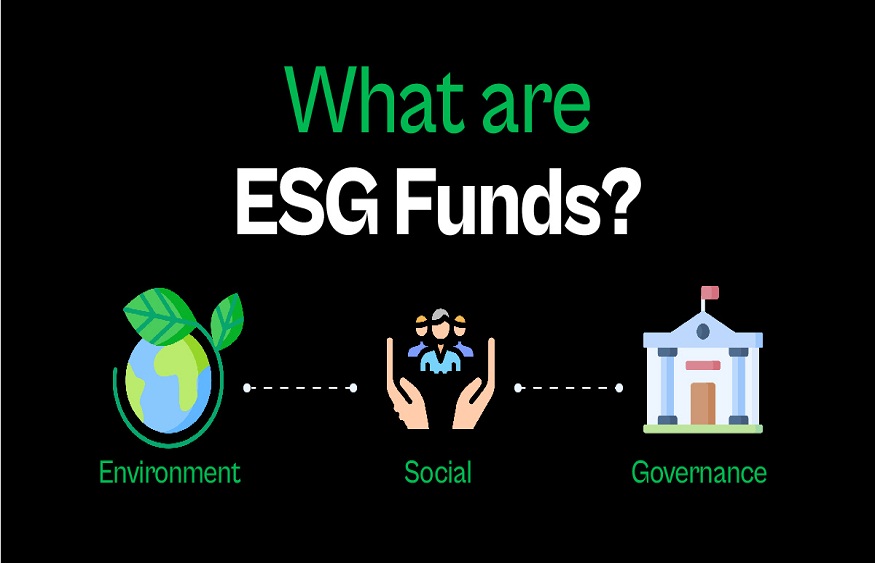In recent years, the concept of investing has evolved beyond mere financial returns. Investors are increasingly seeking opportunities that align with their values, leading to the emergence of Environmental, Social, and Governance (ESG) mutual funds. This shift towards purpose-driven investing reflects a growing awareness of social and environmental issues and a desire to foster positive change through financial decisions. As we delve into the rise of ESG mutual funds, we will explore what they are, their significance, and the future of responsible investing.
Understanding ESG Mutual Funds
ESG mutual funds represent a type of investment vehicle that incorporates environmental, social, and governance criteria into their selection processes. Unlike traditional mutual funds, which primarily focus on financial performance, ESG funds evaluate companies based on their practices and policies regarding sustainability and ethical conduct. This nuanced approach allows investors to contribute to causes they believe in while pursuing financial growth.
At the heart of ESG investing are the three core criteria. Environmental criteria examine a company’s impact on the planet, focusing on aspects such as climate change initiatives, resource conservation, and waste management. Social criteria consider how a company manages relationships with employees, suppliers, customers, and communities, highlighting issues like labour practices and community engagement. Governance criteria evaluate the leadership structure, transparency, and ethical standards of a company, ensuring accountability and fairness in decision-making.
ESG funds come in various forms, including those that employ negative screening, which excludes certain industries (like fossil fuels or tobacco), and positive screening, which actively seeks out companies demonstrating strong ESG performance. Additionally, impact investing and thematic funds focus on specific goals, such as renewable energy or gender equality, allowing investors to support particular causes within their portfolios. Click to learn more.
The Growth and Popularity of ESG Mutual Funds
The rise of ethical investing has been driven by a significant shift in consumer behaviour, particularly among younger generations. Millennials and Gen Z investors prioritise sustainability and social responsibility, demanding greater transparency from companies and investment firms. This generational shift has spurred a surge in ESG mutual fund offerings, as investors seek to align their financial portfolios with their values.
Market trends illustrate the growing popularity of ESG funds, with a remarkable influx of capital into these investments. This trend is not merely a fad; rather, it represents a fundamental transformation in how investors view their role in the economy. As large asset managers and institutional investors increasingly incorporate ESG factors into their decision-making processes, the movement towards responsible investing continues to gain momentum.
The financial performance of ESG mutual funds also plays a significant role in their popularity. Many studies have shown that funds with strong ESG practices can deliver competitive or superior returns compared to traditional funds. As more investors become aware of these performance metrics, the case for ESG investing becomes increasingly compelling.
Benefits of ESG Mutual Funds
Investing in ESG mutual funds offers numerous benefits that extend beyond financial gain. One of the most significant advantages is the positive social impact these investments can generate. By supporting companies that prioritise sustainability, diversity, and ethical governance, investors contribute to the broader social good and help address pressing global challenges, such as climate change and social inequality.
Additionally, ESG funds are often seen as a means of mitigating long-term investment risks. Companies that neglect environmental or social responsibilities may face regulatory fines, reputational damage, and operational inefficiencies, which can ultimately impact their bottom line. By investing in firms with strong ESG practices, investors can better safeguard their portfolios against potential risks associated with unsustainable business models.
Another appealing aspect of ESG investing is the alignment with personal values. Investors are increasingly recognizing that their financial decisions can reflect their beliefs, creating a sense of fulfilment that transcends mere profit. For many, knowing that their money supports companies committed to responsible practices fosters a deeper connection to their investments and enhances their overall investment experience.
Challenges and Criticisms of ESG Mutual Funds
Despite the growing interest in ESG mutual funds, several challenges and criticisms must be addressed. One prominent concern is the phenomenon of greenwashing, where companies present themselves as environmentally friendly or socially responsible without substantiating claims. This can mislead investors and dilute the effectiveness of genuine ESG efforts. To navigate this issue, investors must conduct thorough research, seeking transparency and accountability in the funds they choose.
The lack of standardisation in ESG metrics and reporting further complicates the investment landscape. With no universally accepted criteria for evaluating ESG performance, comparisons between funds can be challenging. Various rating agencies utilise different methodologies, leading to inconsistencies that can confuse investors. As the demand for ESG investments continues to rise, there is a pressing need for greater clarity and uniformity in reporting standards.
Conclusion
The rise of ESG mutual funds signifies a profound shift in how investors view their financial choices. As awareness of social and environmental issues continues to grow, more individuals are seeking to align their investments with their values, contributing to a more sustainable and equitable world. ESG mutual funds offer a unique opportunity to invest with purpose, allowing individuals to support companies committed to responsible practices while pursuing financial growth.





